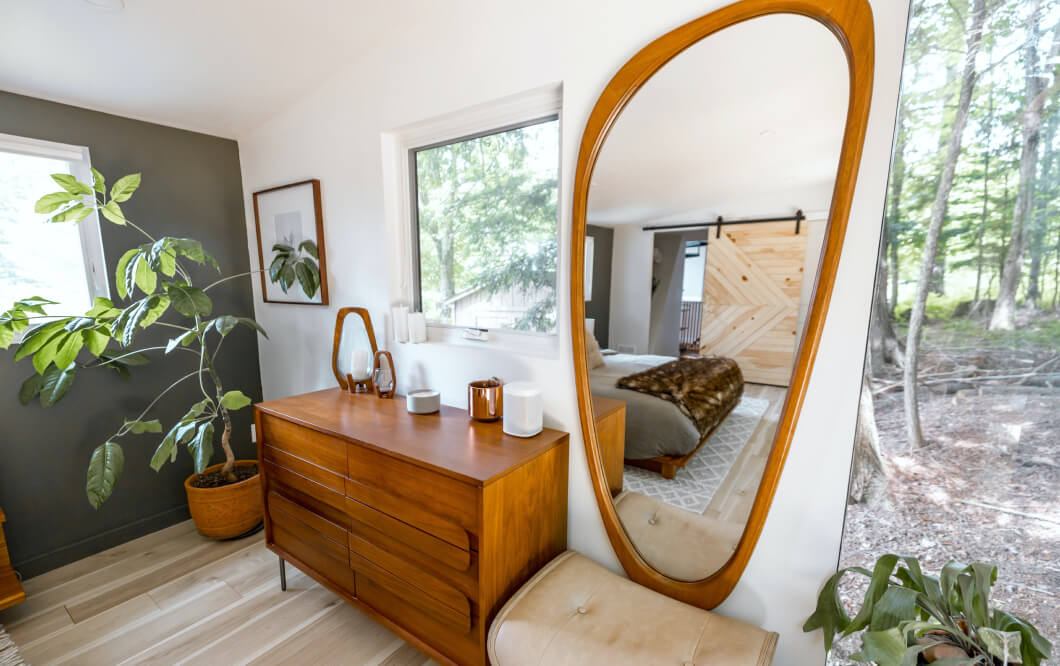5 ways to generate direct bookings for your vacation rental
5th Aug 2022
When starting out as a vacation rental host it makes sense to list your vacation rental on the OTAs (Online Travel Agents) such as Airbnb, Booking.com and Vrbo. You’ll get to reach a far wider audience and they will help you achieve immediate bookings.
However, as you start to fill your calendar and do your calculations, you might be shocked at the amount you have paid in commissions and charges. You’ll also notice that you have minimal contact with your guests and you’re beholden to OTA policies, which increasingly favor the guest over the host.
At this point, you need to be brave and take the decision to stop relying on the OTAs and start working on a holistic approach to your booking strategy.
Developing direct booking channels, such as a book direct website, social media and email marketing, might seem like a lot of work as you start out, but ultimately you will pay less in commission and have more control over your vacation rental business.
It’s a win:win situation but there is some work involved in creating a successful book direct strategy for your vacation rental. Quite a lot in fact, but we promise it’s worth it to become a successful independent vacation rental host with a maximum occupancy and return on your investment.
Let’s take a look at five of the best channels and strategies to win more direct bookings.
- Your Vacation Rental Book Direct Website
- Social Media Marketing for Short-term Rentals
- Reviews & Reputation Marketing
- Email marketing & Personalization
- Google Business Profile
1. Your Vacation Rental Book Direct Website
The best marketing tool you can develop for direct bookings is your own website. It’s your land, your brand and it’s how guests can connect and book with you.
It’s the channel where your guests can find everything about your accommodation, the destination and about you!
Today, savvy guests will shortlist properties on Airbnb, booking.com or Vrbo and then head over to Google to find the accommodation directly. They know they are likely to get a better rate and they can speak directly with the owner and ask questions before they book.
The other benefit of building your own vacation rental book direct website is that the more content you publish on your destination, activities and places to visit, the more guests will find you before they are in the booking stage, when they are researching a destination.
They bookmark you and come back and book with you when they’re ready!
What to know before you start
Like all marketing, your book direct website will only work for you if you put the effort in to keep content fresh and relevant.
A website which features only accommodation information will act as a portfolio and not much more. Successful book direct websites mix up functional content - accommodation detail - with inspirational content - destination, activities, niche messaging.
Your website should be constantly evolving and it takes time and effort. Many hosts will hand the content management of their website to a content writer who will write an agreed number of blog posts each month and update pages and images.
Insider Tip
Before you start to write your book direct website content, create an ideal guest profile and write with them in mind.
2. Social Media Marketing for Short-term Rentals

With over 4.6 billion users worldwide, social media is an essential channel for any type of business and without doubt one of the most important channels for vacation and destination marketing, including for vacation rental owners and hosts.
Social media allows you to put your accommodation, destination and unique selling points directly in front of potential guests in an environment where they feel comfortable and are happy to engage with posts and businesses that resonate with their likes and interests.
Social Media Marketing isn’t the environment to push a hard sales message unless you are investing in paid-for advertising spots.
While your bio description is all about promoting your vacation rental, what you post will need to be biased towards destination and travel content.
Why? Because social media users aren’t looking for your vacation rental. They are looking for travel inspiration.
Similarly to your book direct website, engagement with users will come through a mixed content strategy, an example might be:
- Posts about your vacation rental (20-40% of content)
- Destination and things to do in your area (40-60% of content)
- Sales and promotions (10-20% of content)
What to know before you start
Just like your website, social media marketing needs to be consistent and constant. There is no point setting up a profile, posting for two weeks and then not posting anything for two months.
The best way to start is to pick 2-3 social platforms, such as Instagram and Facebook, or Pinterest and YouTube.
Your choice should be based on the profile of your ideal guest and where they are most likely to hand out, and commit to a number of posts each week.
Insider Tip
Engage with other local businesses on social media. Like and share their posts and gradually you will see the love returned.
3. Reviews & Reputation Marketing
Are reviews part of your book direct strategy? Absolutely. Reviews are reputation marketing and in the travel business - in any business - they can be the motivation to book with you or a competitor.
The more review resources you have your vacation rental linked to, the higher your visibility and the more likelihood your ideal guests will find you.
Don’t restrict your review channels to your Airbnb listing. Give guests the opportunity to review on Airbnb, on your Google Business Profile and a review platform, such as Trustpilot, or a specialized vacation rental review aggregator, such as Revyoos.
Aside from improving your reputation through good reviews. All reviews - good, bad or indifferent, can reduce complaints from booking guests as they have advanced information and real feedback from past guests.

What to know before you start
When you reply to a review, you aren't just replying to the guest, you are replying to the 500 people that will also read that review.
Therefore, try to respond to every reviewer whether their feedback is positive or negative. If you receive a negative review and it’s a genuine complaint, you should respond with empathy and a promise to resolve the issue.
When the issue is resolved make sure that you post back to the reviewer. This will show potential guests your commitment to constantly improving your accommodation.
Insider Tip
Ask your guests for a review the day before they leave. Once they get home and back into a routine, they lose the momentum. While they are still enjoying their holiday, they are more likely to give you a glowing review.
4. Email marketing & Personalization
What do you do when your guests leave after having enjoyed a fabulous vacation in your rental home? Those who loved what you have, or who engaged with you on social media and gave you a five-star review?
Nothing? Let them go? Wrong answer!
Staying in contact with past guests is the best low-budget marketing strategy for vacation rental hosts. A 2022 report on email marketing by Hubspot suggests that for every $1 you spend on email marketing, you enjoy an ROI of $36.
The best strategy is to ask as many questions pre-stay, so that you can build a rich guest profile to use post-stay to stay in touch.
Did you know that personalised promotion can be up to x9 more effective than generic promotions, so the more you learn about your guests pre, during and post-stay, the more personalised you can make your email marketing in the future.
What to know before you start
We’ve said it before and we’ll say it for every piece of the puzzle within your book direct strategy. Your email marketing has to be constant and consistent, as with every other content you put out there.
If you decide to send an email once a quarter, stick to it. And create a plan, so you know exactly what you’re going to include in each newsletter. Include links to blog posts, special promotions and early-bird prices, events, and any news that might affect a booking decision - new flight routes opening is a great example.
Insider Tip
Most email promotions campaigns end up in the promotions or spam folder. A great way to avoid this is to get your guests opt-in approval during their stay with you and ask them to add your email to their email address book.
That way, your emails should arrive directly into their inbox. As long as you’re not sending bulk emails. Don’t forget to keep it personal!
5. Google Business Profile
If a traveller has a question about booking a vacation, a destination or accommodation, they might go and look for the answer on social media, but more than likely they will head over to Google to ask the question.
If you have a book direct website, chances are they might find you, but in case they don’t, creating a Google Business Profile is a sure way to get found.
In fact, over 3 billion searches are done on Google each month for hotels. As a vacation rental host, you can take advantage of this by showcasing your vacation rental with a Google My Business profile.
It’s simple to create a profile. You can include your vacation rental brand or business name, address, photos, reviews, map links, contacts and rental rates. The more information you include, the more easily you will be found.
What to know before you start
Any business can set up a Google My Business profile, which will allow potential guests to find you by searching for your brand or vacation rental house name.
However, if you want to be specifically listed as a Vacation Rental, Google will first want to verify that you are a legitimate business and follow certain conditions.
You will be asked to verify what category best fits your business (e.g., tourist apartment, vacation accommodation service, cabin rental) and if you:
- Have visible signage outside of your home which clearly states what type of accommodation business you are and your brand name
- Offer a 24-hour reception service
Unless you are managing a condo/serviced apartment style business it’s unlikely that you will offer a 24-hour reception, however, it’s also very difficult for Google to verify this information.
With this in mind, it’s up to you if you wish to interpret being on-hand 24/7 as a serviced reception and proceed to register as a vacation rental. Alternatively, you can register your business without applying for accommodation status and create the best brand profile for your guests to find you.
Insider Tip
Your Google My Business profile will appear when someone types in your business name (perhaps they found you on Airbnb and jumped over to Google to book direct), so it’s important to give your vacation rental a memorable brand name which is instantly recognizable and easily found.
Find out how to achieve more direct bookings in our Book Direct Owner Case Study. We speak to vacation rental host and direct booking advocate, Kendall Dunlop, as she shares her insider tips on how to make your book direct strategy a success.
